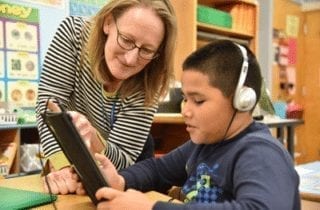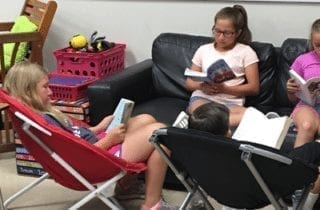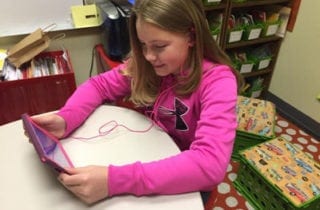This edWebinar explains why stories can have a physical impact on the brain, and how moments of deep learning and engagement can have transformational impacts on students.
In this edWebinar, learn to identify misconceptions about stuggling readers, and strategies to provide improved learning opportunities for all students.
In this edWebinar, learn how to help restore the broken connection between words and struggling readers through various methods.
In this edWebinar, Christy Scattarella shares how a pilot project addresses key skills that unleash a discouraged reader’s innate courage.
In this edWebinar, Learn how one teacher made her classroom a haven for struggling readers, a place where learning happened and teaching became organic through small groups and conversations.
Current approaches to identifying students with reading disabilities are often problematic and ineffective, and will not lead students to academic success. Significant improvements in identification and screening have been made to provide greater support, and earlier. In “Cutting-Edge Research to Empower Schools to Support Students with Reading Disabilities,” Rick Wagner, Associate Director for the Florida Center for Reading Research, discussed problems with current methods and how to better help students with these disabilities.
In this research-driven edWebinar, Jan Bryan, Ed.D., National Education Officer at Renaissance, presents essential insights into how the right reading practice will lead to substantial gains in student growth.
Personalized learning for struggling readers can be timesaving and easy to execute. Finding patterns and honing in on students’ reading skill deficits will quickly point educators to the appropriate intervention. In “Timesaving Strategies for Selecting Interventions for Struggling Readers,” Cindy Kanuch, Reading Specialist at Calhan Elementary School, presented tips on working to address skill deficits in the most efficient and effective manner, which in some situations can help students improve in as soon as one to two weeks.
Audiobooks cannot replace explicit reading instruction, because a balance of support and accommodations is needed for struggling readers. In this webinar, Learning Ally’s Terrie Noland, National Director of Educator Engagement, will discuss the when, where, how, and why of effectively incorporating audiobooks as an assistive technology tool for students with dyslexia.
From apps to software to cloud-based cross-platform supports, this webinar will explore tools that can aid struggling readers











